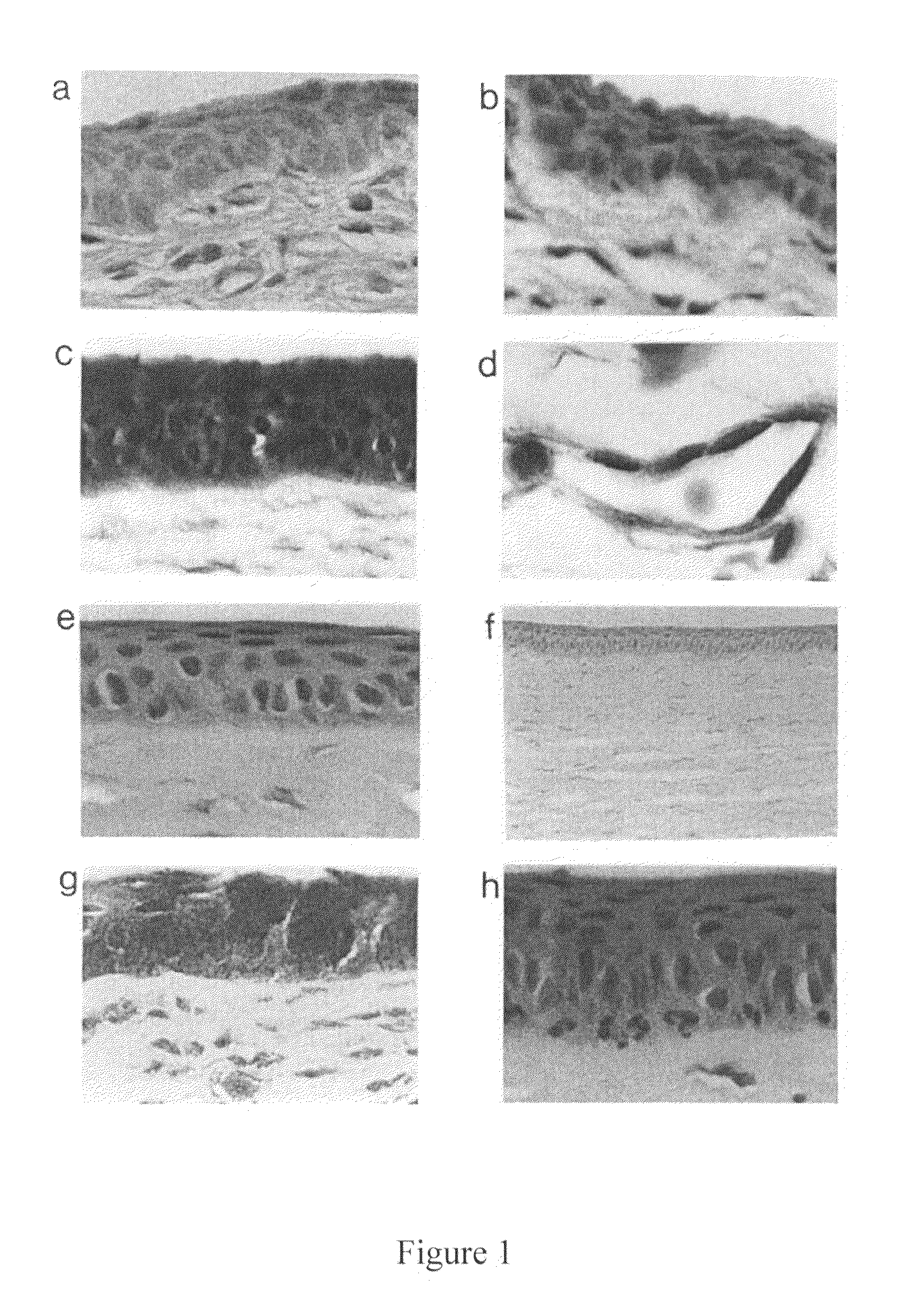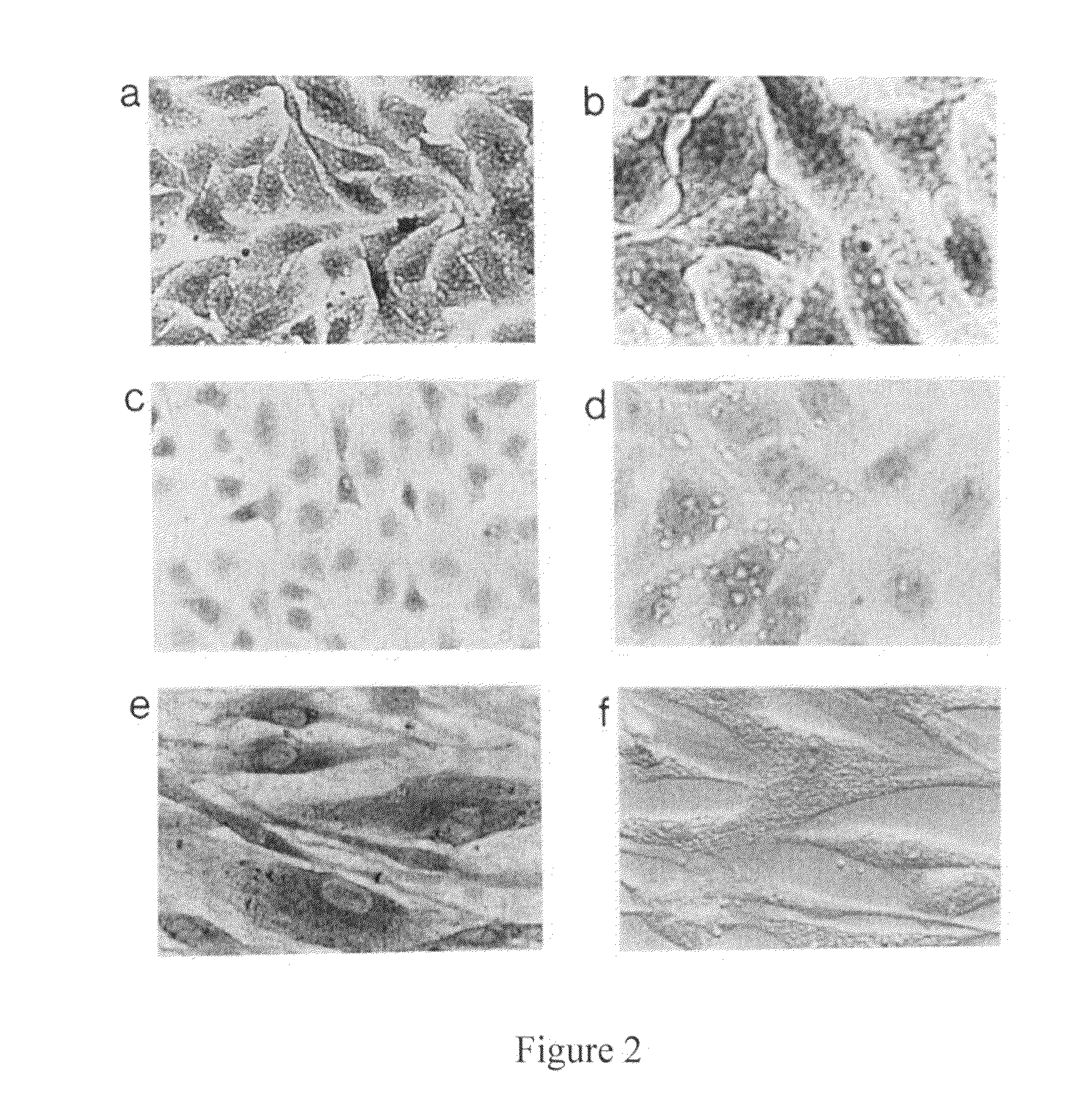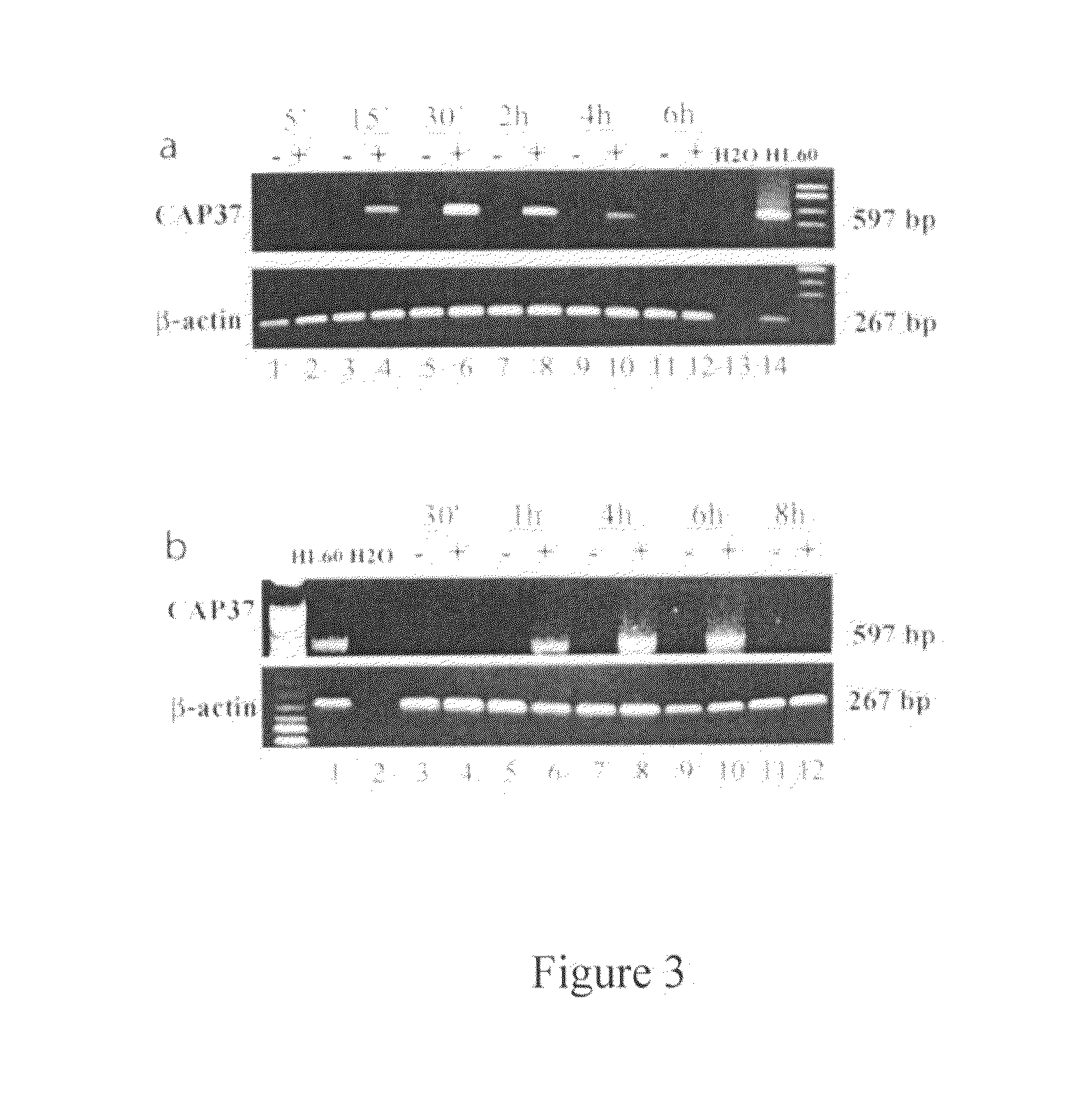Treatment of ocular wounds and ulcers
a technology for ulcers and ocular wounds, applied in the field of ulcer treatment of ocular wounds and ulcers, can solve the problems of corneal wound healing, corneal wound healing, and most at risk wearers of contact lenses, and achieve the effect of inhibiting infections and promoting healing of corneal wounds
- Summary
- Abstract
- Description
- Claims
- Application Information
AI Technical Summary
Benefits of technology
Problems solved by technology
Method used
Image
Examples
Embodiment Construction
[0025]CAP37 (Cationic Antimicrobial Protein of Mr 37 kDa) is an inflammatory mediator which plays an important role in host defense and inflammation in the systemic circulation (11-15). PMN-CAP37 (SEQ ID NO:1) is constitutively expressed in the granules of human polymorphonuclear neutrophils (PMNs) and in the α granules of platelets (16-17), and due to its strong antibiotic activity was viewed as part of the oxygen-independent killing mechanism of the PMNs (18-20). The native protein (PMN-CAP37) is particularly potent against the Gram negative bacteria including Escherichia coli, Salmonella typhimurium and Pseudomonas aeruginosa (18-20). Peptides based on the native CAP37 sequence have demonstrated antibiotic activity against the Gram positive bacteria, Enterococcus faecalis and Staphylococcus aureus (11). In addition to its effects on bacteria, CAP37 has many important functional effects on mammalian cells. CAP37 exerts powerful chemotactic activity for monocytes (13) and regulates...
PUM
| Property | Measurement | Unit |
|---|---|---|
| adhesion | aaaaa | aaaaa |
| intercellular adhesion molecule | aaaaa | aaaaa |
| platelet-endothelial cell adhesion | aaaaa | aaaaa |
Abstract
Description
Claims
Application Information
 Login to View More
Login to View More - R&D
- Intellectual Property
- Life Sciences
- Materials
- Tech Scout
- Unparalleled Data Quality
- Higher Quality Content
- 60% Fewer Hallucinations
Browse by: Latest US Patents, China's latest patents, Technical Efficacy Thesaurus, Application Domain, Technology Topic, Popular Technical Reports.
© 2025 PatSnap. All rights reserved.Legal|Privacy policy|Modern Slavery Act Transparency Statement|Sitemap|About US| Contact US: help@patsnap.com



